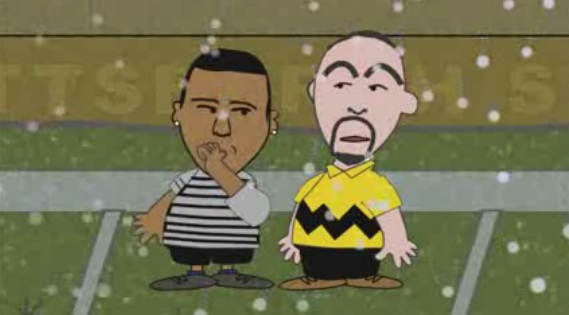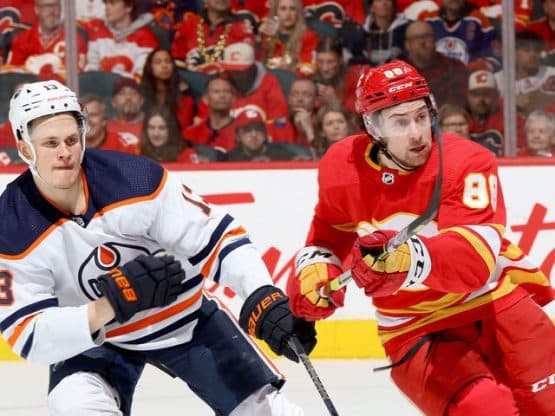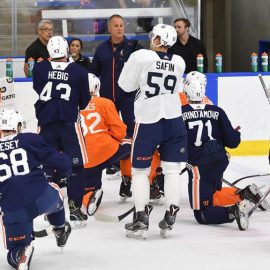The story is an old one. A tyranny falls. Factionalism breaks out between the houses of noble families eager to fill a power vacuum. A messy, bloody civil war ensues. Civil leaders remain factional patriarchs representing little more than the narrow interests of their own house. One intrepid patriarch, on the verge of losing ground, hits upon a novel idea. He reaches out to the common people (the demos), offers them political power and succeeds in gaining their confidence. Bolstered by the support of the just now politically activated rabble, the tides turn in his favor.
Thus, the people obtained control of affairs, and Cleisthenes became leader and champion of the people.
~Aristotle, Athenian Constitution, 20.4
Assuming power c. 508/7 BCE, Cleisthenes incorporates the people into civic rule through a radical reform. He breaks down the historic patrilineal divisions (the city previously being divided into 4 parts each governed by a ruling family) and redistributes political power into civic divisions, including all the people (well, not ladies, metics, etc.).
As champion of the masses… Cleisthenes distributed all the citizens through ten tribes instead of the old four, wanting to mix them up so that more men should have a share in the running of the state. This is the origin of the saying, ‘Don’t judge the tribes,’ addressing those who want to inquire into a man’s ancestry.
~Aristotle, Athenian Constitution, 21.1-2.
Measures like those which Cleisthenes passed when he wanted to increase the power of the democracy at Athens… Fresh tribes and brotherhoods should be established; the private rites of families should be restricted and converted into public ones; in short, every contrivance should be adopted which will mingle the citizens with one another and get rid of old connections.
~Aristotle, Politics, 1319b20-27.
This fairly simple story tells the history of democracy’s birth. An aristocratic patriarch, in danger of losing a civil war, makes a (probably cynical) move to gain and make use of the untapped political power of the people. In order to entrench his power, now aligned with the fate of the people, he radically reorients the political space.
At the time, political interests were divided according to traditional, private, patrilineal families. Think of a city-state run by 4 mafia families. An awkward balance of power persists amongst them, occasionally being tipped in the favor of one family or another resulting in tyranny.
Now imagine two changes. The mass of the common people are incorporated into the political life of the city-state. And, political interests are redistributed according to public, civic districts.
These two changes reinforce one another. The power vested in the old familial connections no longer holds. The entire model of doing business on the basis of traditional familial associations breaks down. A new model emerges based on a geometric conception of the city-state. It is divided into equal districts without concern for historical ties and power centers. As the newly incorporated people join the fray, those wishing to gain political legitimacy must not only appeal to them but also forge new allegiances and develop new methods of winning others over. They can no longer rely on traditional connections to keep themselves in power.
Two key points I want to hit on:
1) the incorporation of all interested parties, not merely those historically vested with power
2) the radical, structural change of the space in which power operates
So… what on Earth does this have to do with hockey?
[By using this, perhaps tortured, analogy, I absolutely do not wish to ascribe any world historical importance to hockey (I hope that’s obvious). I’m offering this analogy only insofar as I hope to give readers a narrative to help illustrate the current state of hockey as I see it.]
Now, the world of hockey, I’d like to argue, has undergone a massive democratization over the past decade. Two largely accidental elements have enabled this outcome.
1) Social media has largely supplanted the utility of the beat-reporter-as-team-stenographer. When Dallas Eakins can scoop hall of fame writer Jim Matheson by tweeting out his line-up, access, prestige and authority-by-proxy-of-job-title are all brought into question.
When fans can interact with players, members of the media and each other, the playing field is levelled. An equality of access into the game of hockey opinion and analysis now reigns. As much as this equality enables the average fan, it also encourages a model of contestive engagement.
What do I mean by this?
Well, consider this: previously, it was certainly the case that hockey enjoyed a robust and opinionated chattering class. This chattering class, however, has always been caught up in hierarchal model. Teams and the ‘insider,’ ‘access’-fuelled media that follow them have enjoyed an occasionally combative relationship over the years, which is mostly characterized as symbiotic with the media playing deferential errand boy. The rest of us, however, have been left to argue amongst ourselves as to the validity of the information we’ve been given with what little tools we’ve had available.
Now, the landscape has changed dramatically. Information no longer emanates strictly from a few isolated sources and the top-down model no longer holds. You are just as likely to learn a key piece of information––say a roster decision, an injury or a player’s stats––from a fan blog, a tweet from a fan attending a game, from the person directly (as in Eakins’ tweets), etc., as you are from the old, still operating, media functionaries.
With a levelling of the playing field, all are encouraged to contest once unassailable truths and their sources. If a GM, coach, player or media personality makes an ostensible statement of fact, that statement, in the current environment, is almost immediately met with skepticism. Moreover, it is publicly challenged in a variety of ways previously unavailable.
A kind of spirit of contest is apparent everywhere. In this environment, traditional modes of wielding authority (by position, status, tenure, etc.) no longer hold imperial sway. All voices exist along a levelled off continuum. In many ways, this is deeply problematic. Misinformation can be rampant. Unmerited voices are given license to claim almost anything. But, at the same time, the spirit of contest, to a large degree, reduces the noise of these problems. It provides an immediate corrective. And, insofar as it encourages a contesting atmosphere, it encourages those taking part to do better, to make stronger arguments and to be more exacting in their information. The environment itself acts as a spur to better and better analysis as novel ideas get put forward, objections get raised and a process of critical engagement unfolds.
No, there is not just one kind of Eris [Goddess of Strife] present upon Earth,
but there are two. The man who is wise would give praise to the one,
blame to the other; their spirits are so completely opposed.
One of them, she of the hard heart, stirs up the evil of war and
conflict of battle, and no mortal loves her, but under compulsion,
as the immortals decree, we honor the burdensome Eris.
But the other, who is the older daughter of black Night,
Zeus, son of Kronos, ruling on high and dwelling in brightness,
put in the roots of the earth, and she is much better for men.
She sets a man to his work in spite of the fact that he’s shiftless,
for it makes him eager to work whenever he sees
another prospering, one who is hastening to plow and plant and
build an excellent homestead. Neighbor is envious of neighbour
hastening to wealth, and this is the Eris that benefits mortals.
~Hesiod, Works and Days, 11-24.
2) The data explosion of 07-08 NHL game reports has given us a wealth of new information.
Since 07-08 the NHL has published detailed game reports including all shot events. This information was never collected and published with the expectation that it would enable intrepid fans to develop shot based metrics (corsi and fenwick). It is a pure accident that a change in data collection has led to this information being seized upon and made use of in a novel way.
This particular data explosion runs parallel with a series of other gains in knowledge (player usage, competition metrics, etc.) as those eager to learn and compete in the conversation about hockey have made interesting use of every scrap of information available.
The gain of this information has been crucial to adding a serious concern for empiricism to the spirit of contest. In the democratic age of hockey, not only are the received wisdoms of old met with skepticism, they are increasingly subject to the pressure of fact checking. Narratives have met and been confronted by reality. And, those seeking to enter the conversation of hockey are increasingly feeling the burden to check their opinions against some form of reality-based information.
Final Thoughts
Hockey has entered its democratic era. A chaotic mess of opinion exists. All are invited to hold court and the old patriarchs have become jesters. Alongside the equality of access that now reigns, stands a spirit of contest that encourages those participating to challenge those around them to innovate and to hone their analytical tools. In this contestive atmosphere, the putative winner of any particular debate is far less important than the atmosphere itself, which is one of both openness and competition.
[adsanity id=1808 align=alignnone /]
Add The Sports Daily to your Google News Feed!








